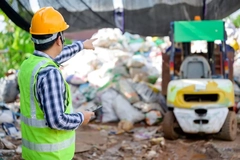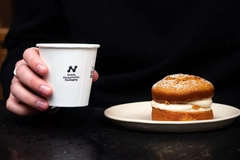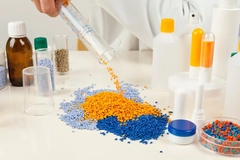Cold box collaboration tackles food waste and transportation challenges in East Africa

Aston University, UK, and Ugandan agribusiness Rural Aquaculture Development Global (RAD) have joined forces to launch RADiCool, an affordable, portable cold box that keeps food fresh without access to grid electricity. The innovation aims to transform food preservation for small-scale farmers and fishers in East Africa.
With support from the Efficiency for Access Research and Development Fund, the partnership developed a cost-effective cool box with a phase change material (PCM) system that can preserve fish freshness for up to 48 hours.
Dr. Ahmed Rezk, senior lecturer in mechanical, biomedical and design engineering at Aston University, and Tim Messeder, co-founder of RAD, tell Packaging Insights: “We know that the majority of goods and products that benefit from a cold chain do not use one within Eastern and sub–Saharan Africa. This is because markets are still very localized, with most products being transported in small volumes.”
“The design we have chosen is simple and uses locally available materials to reduce cost where possible. After selecting the best insulation type, the insulation thickness was chosen on the most cost-effective basis. Some of the more technically complex items are made from off-the-shelf components that can be retrofitted to our own specifications.”
Incorporating smart design
In Uganda, spoilage has plagued small-scale fishers, many of whom are women. Transport journeys from remote lakes and ponds can last up to nine hours, and up to 42% of fish traders report losses due to inadequate cooling.
The cold box can store fish, a vital source of micronutrients in Uganda, caught from ponds located in remote areas across the country.Ghanaian orange juice producers also face problems with transporting juice under reasonable conditions. According to Aston University, this contributes not only to financial instability but also to food insecurity in the region.
“The biggest challenges were twofold,” share the developers. “First, designing a PCM system that could rapidly bring down the internal temperature of all of the product, regardless of its physical location in the box, was challenging.”
“We can store a large quantity of cooling energy, but poor cooling distribution means this cooling is not utilized. We also needed effective insulation to minimize the cooling loss.”
“Our computer model, coupled with smart design solutions, allowed us to run several lab-based scenarios until we were able to obtain the result we needed.”
“The second challenge was accessing a reliable supply chain to develop and scale RADiCool. With the help of valuable local partners, we are beginning to solve this challenge.”
Technological backbone
RADiCool features a lightweight insulated cold box powered by PCMs and Internet of Things (IoT) technology, which allows it to monitor temperature and location in real time.
The system cools produce from 25 degrees Celsius to refrigeration temperatures within four hours and sustains cold conditions without pre-cooling capacity.
“We have worked with local technical staff who are used to working in the East African market, to benefit from their design and contextual knowledge. We are committed to empowering small-scale traders with sustainable solutions that reduce waste and improve livelihoods,” Messeder and Rezk say. The off-grid cold storage solution can cut waste and enhance rural livelihoods.
The off-grid cold storage solution can cut waste and enhance rural livelihoods.
PCMs mimic the behavior of ice, absorbing and releasing energy as they transit between solid and liquid states. Unlike ice, however, the specially designed PCMs can maintain a consistent cold temperature for longer durations.
RADiCool’s PCM panels are frozen using solar-powered hubs for later use in pre-cooling and storing the product at the desired temperature.
Scaling for vulnerable communities
Designed specifically to fit on the back of a motorcycle, the most common form of rural transport in the region, RADiCool aims to offer a practical solution for first- and last-mile delivery of perishable goods.
Field trials have demonstrated the system’s ability to extend the safe selling window for fish.
“Poor cooling causes the growth of bacteria and bloating of packages. We are confident that meat, dairy, fruit, and vegetable markets would all rapidly adopt RADiCool once we have scaled this innovation,” say the developers.
RAD and Aston University are working on scaling and commercializing the innovation. Next steps include finalizing a new PCM panel design, engaging manufacturing partners, expanding field testing, and implementing a pay-per-use business model to increase accessibility.










